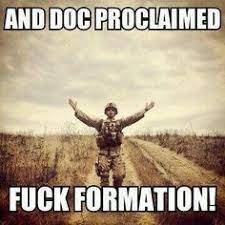Devildoc
Verified Military
That's the other part, "Trust but Verify". Leaders inspire people to step up and do their best, but they spot check to make sure it is really meeting expectations. If you are truly leading, your direct subordinates will actively reach for new heights, hopefully by leading THEIR subordinates.
Of the three leadership styles you cited, authoritative breeds resentment and is easily the worst. It's also the most common in the military simply because there is such a focus on rank. Look up leading via power vs influence. Leading by influence is possible in the military, but it takes practice. Participative doesn't fit the military culture. Delegative is the best as long as you delegate the authority equal to the responsibility. If you delegate responsibility without the authority to get it done, you are setting them up for failure, which is a failure of your own.
ETA: Here's a good set of crib notes on Power vs Influence in Leadership Research Guides: Team Dynamics: Dealing with Power and Influence
Participative is kinda counter to the military model, but it can be done. You have to have the right 'style' to practice it, and like a lot of the styles it's not one-size-fits-all.
The best leaders are chameleons and can change to meet the requirements of the people and mission, effortlessly flowing in between "styles." But I have seen great leaders who made terrible managers, and vice versa.

